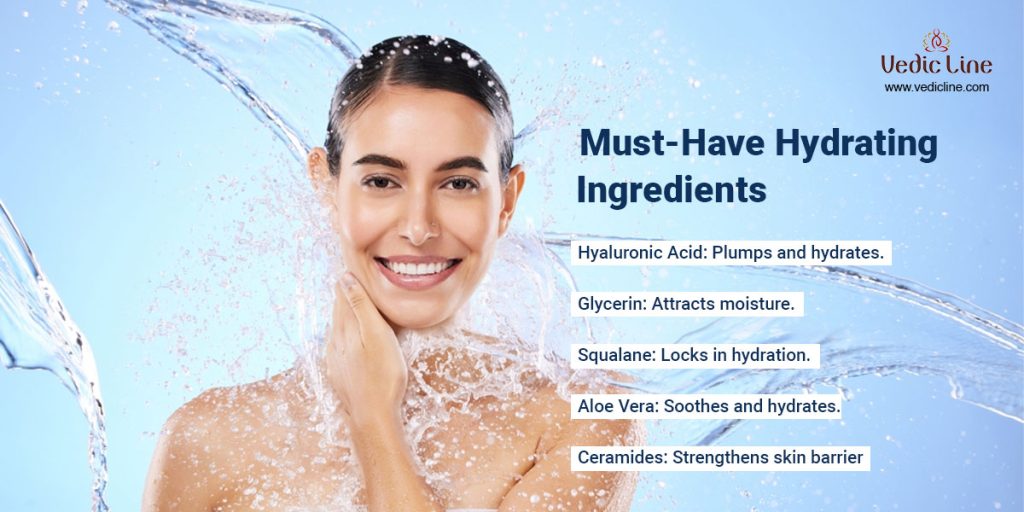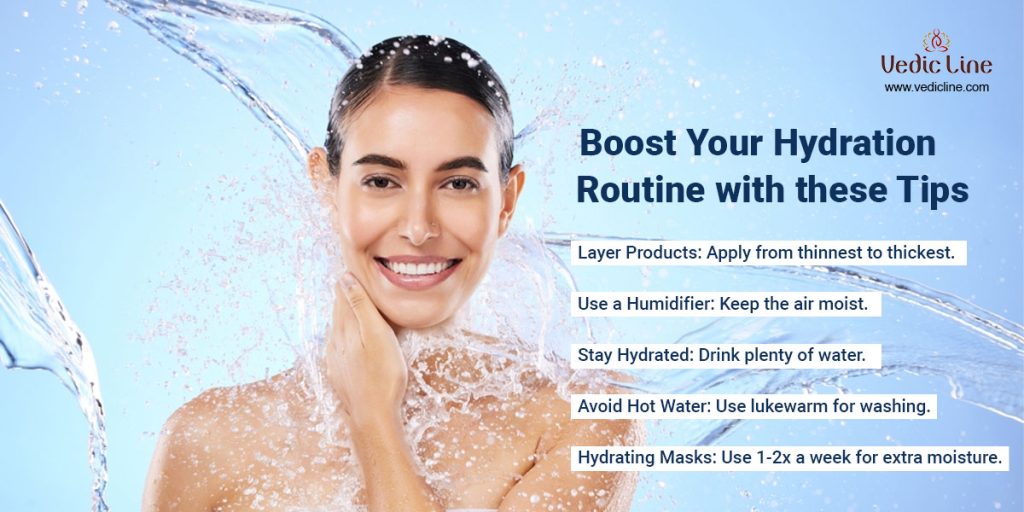Hydration is one of the cornerstones of healthy, glowing skin. While it’s often touted in the context of drinking water, the role of topical skin hydration routine is just as crucial. Whether you’re dealing with dry patches, dullness, or signs of aging, incorporating a hydration boost into your skincare routine can make a significant difference. Here’s why hydration should be at the forefront of your skincare regimen and how to give your skin the moisture it craves.
The Basics of Skin Hydration
Hydration and moisture, though often used interchangeably, refer to different aspects of skincare. Hydration refers to the water content within the skin, which is crucial for maintaining a plump, smooth, and youthful appearance. Moisture, on the other hand, refers to oils and emollients that lock in hydration and create a barrier to prevent water loss.
Proper hydration is fundamental to skin health. When the skin is well-hydrated, it functions optimally, looks radiant, and is better equipped to defend against environmental stressors. Conversely, dehydrated skin can appear dull, flaky, and more prone to fine lines and wrinkles.
The Benefits of Hydrated Skin
- Improved Skin Texture and Elasticity: Hydrated skin is smoother and more supple. Water helps to maintain the elasticity of the skin, reducing the appearance of fine lines and giving it a youthful bounce.
- Enhanced Radiance: Proper hydration gives the skin a natural, healthy glow. When skin cells are plump and well-hydrated, light reflects off them more evenly, creating a luminous appearance.
- Balanced Oil Production: Dehydrated skin often compensates by producing excess oil, leading to breakouts and an uneven complexion. By keeping your skin hydrated, you can help regulate oil production and prevent these issues.
- Better Absorption of Skincare Products: Well-hydrated skin is more receptive to other skincare products. Moisturizers, serums, and treatments penetrate more effectively, enhancing their efficacy.
- Reduced Sensitivity: Hydration strengthens the skin’s barrier function, which can help reduce sensitivity and irritation. People with conditions like eczema or rosacea will particularly benefit from this.

How to Boost Your Skin’s Hydration
- Choose the Right Hydrating Ingredients: Incorporate ingredients known for their hydrating properties into your skincare routine. Look for products containing hyaluronic acid, glycerin, aloe vera, and squalane. Hyaluronic acid, for example, can hold up to 1000 times its weight in water, making it an excellent choice for plumping and hydrating the skin.
- Layer Your Hydration: Apply hydrating products in layers to maximize their benefits. Start with a hydrating toner or essence, followed by a serum, and then finish with a moisturizer. This layering technique ensures that hydration is locked in at every step.
- Use a Humidifier: Dry indoor air, especially in winter, can strip moisture from your skin. Using a humidifier adds moisture to the air, which can help keep your skin hydrated and prevent dryness.
- Drink Plenty of Water: Hydration starts from within. Drinking adequate water throughout the day is essential for maintaining skin hydration. Aim for at least 8 glasses of water daily, and consider incorporating hydrating foods like cucumbers, oranges, and leafy greens into your diet.
- Avoid Over-Cleansing: Cleansing is important, but over-cleansing can strip the skin of its natural oils and disrupt its moisture balance. Use a gentle, hydrating cleanser and avoid washing your face with hot water, which can further dehydrate the skin.
- Incorporate Hydrating Masks: Add hydrating masks to your skincare routine for an extra moisture boost. Look for masks with ingredients like honey, a natural humectant, or clay masks specifically formulated to hydrate rather than dry out the skin.
- Consider Your Environment: Protect your skin from harsh environmental factors that can contribute to dehydration. Apply a broad-spectrum sunscreen daily to shield your skin from UV damage, which can impair its ability to retain moisture.

Tailoring Hydration to Your Skin Type
Different skin types have unique hydration needs. Here’s how to address them:
- Dry Skin: Opt for rich, emollient creams and oils that provide a substantial moisture boost. Look for products with occlusive agents like shea butter or ceramides that create a barrier to lock in hydration.
- Oily Skin: Use lightweight, oil-free hydrating products to avoid clogging pores. Gel-based moisturizers and hydrating serums can provide essential moisture without leaving a greasy residue.
- Combination Skin: Focus on balancing hydration by applying richer products to dry areas and lighter formulations to oily zones. A hydrating toner can help even out moisture levels across the face.
- Sensitive Skin: Choose hydrating products formulated for sensitive skin, free of fragrances and harsh chemicals. Ingredients like chamomile and calendula can soothe and hydrate without irritating.
Closing Lines
A hydration boost is not just an additional step in your skincare routine; it’s a fundamental aspect of maintaining healthy, radiant skin. By incorporating hydrating ingredients, adopting proper skincare habits, and tailoring your skin hydration routine to your skin type, you can achieve a complexion that looks and feels its best. Remember, hydrated skin is happy skin, and with the right approach, you can enjoy a vibrant, glowing appearance all year round.



